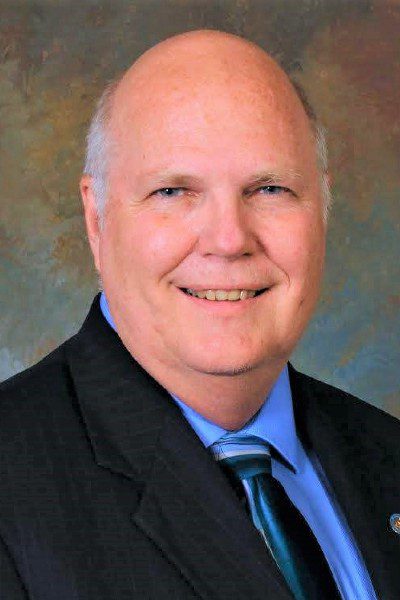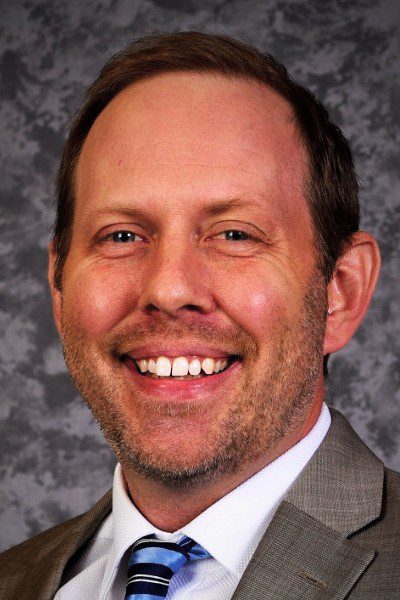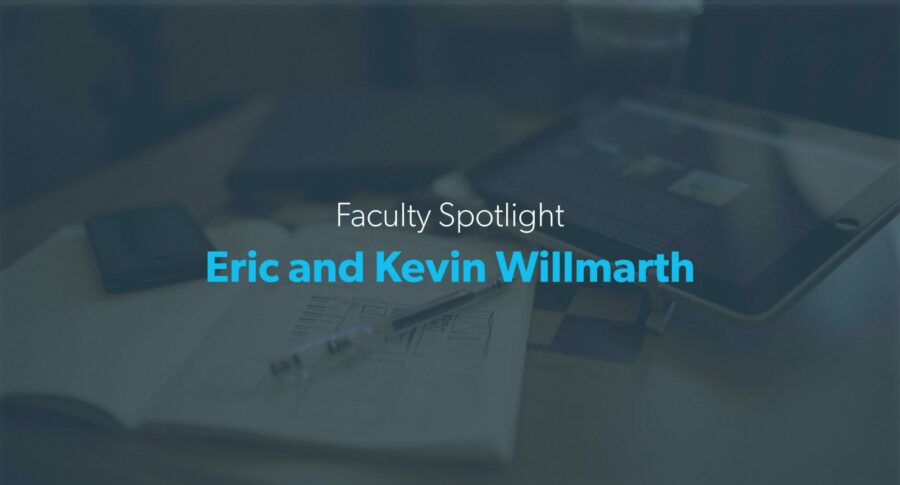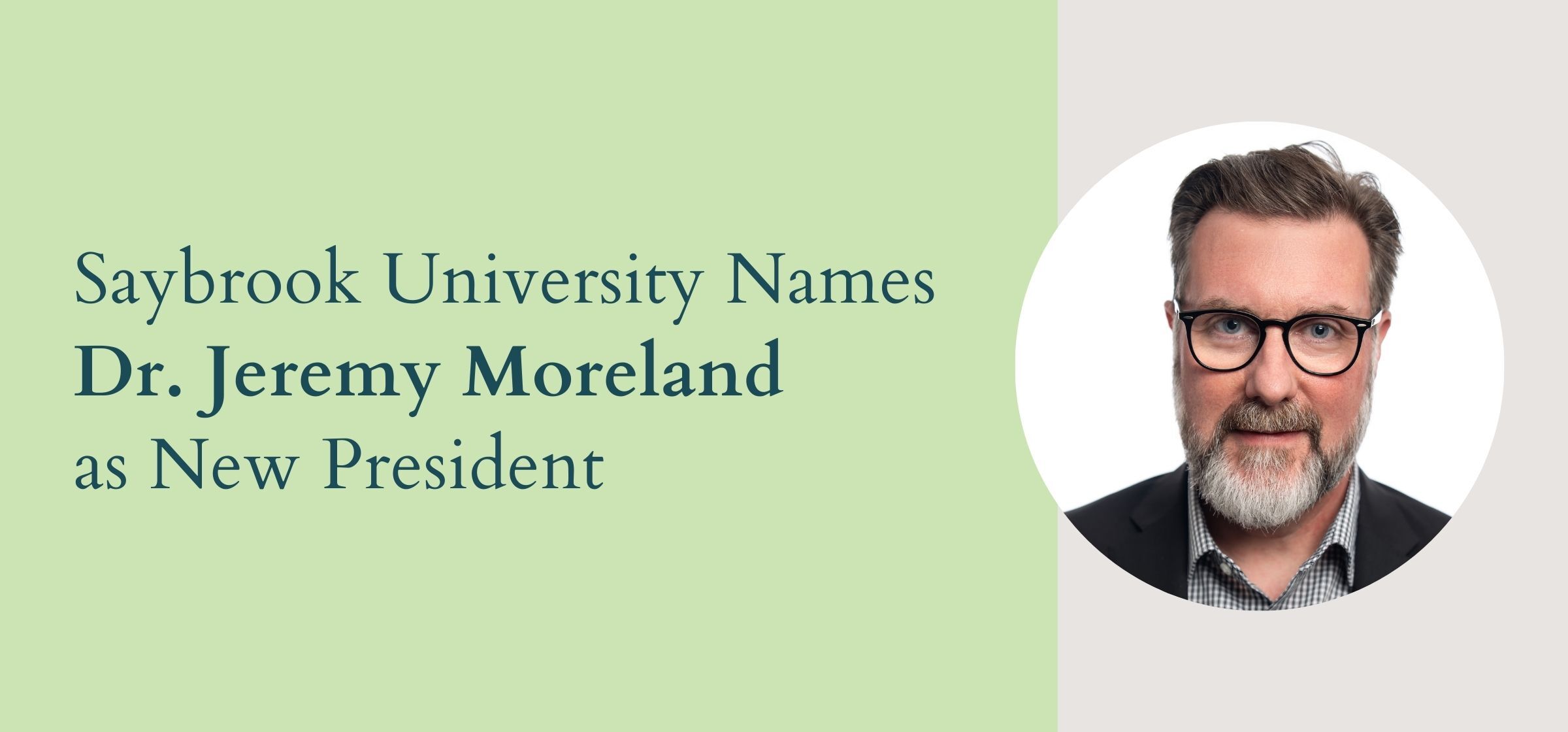
Eric Willmarth, Ph.D., is chair of the Applied Psychophysiology department in the College of Integrative Medicine and Health Sciences at Saybrook University. His son, Kevin Willmarth, Psy.D., is an adjunct professor in Health Psychology as well as the director for consulting at the VHA National Center for Organization Development at Saybrook. They wound up working in the same field and at the same university through sheer coincidence—and a belief in paying attention to the interests that make one happiest.
Some fathers pressure their sons to join the family business, but Eric Willmarth never did that to Kevin. As a psychologist, Eric knew how toxic parental pressure could be. Instead, he encouraged Kevin to follow his own interests and stay true to himself. Kevin did so and became a psychologist and a faculty member at Saybrook, just like his father.

Early in Eric’s psychology career, while his own children were still young, many of his patients were children. Kevin recalls, “My dad went to work, and he had toys.” For a child, that was appealing and perhaps predisposed Kevin to an interest in psychology.
Later, Kevin studied psychology, but while his father focused on individual patients, Kevin became interested in the psychology of human systems and the way group dynamics and individual behaviors can affect large-scale outcomes.
Today, Kevin works in organizational development for the Veterans Health Administration. His job includes executive coaching and consultation as well as helping teams handle organizational change. At Saybrook, he teaches health psychology, sports psychopathology, and consulting.
Different Practices, Similar Discoveries
Although Eric and Kevin’s specialties differ, they have what one might call a family resemblance.
Both father and son find meaning in helping people build their own awareness of habits and problems, and both have been guided by following their own interests—as well as a certain amount of chance. “[For] both of us, our careers are kind of serendipitous,” Eric says.
It was a photography assignment for his high school yearbook that first brought Eric into contact with hypnosis. Soon, he was talking to every practitioner he could find. With their consent, he began recording their conversations as a “living history of hypnosis.” Many are now available on his website, Hypnosis Central. Today, his clinical practice includes biofeedback as well as hypnosis, two approaches that help patients build awareness of their behavior and use that understanding to respond constructively.
Similarly, a different early path brought Kevin into contact with what would become his main focus. “I just went where my interest was,” he says. At first, that meant sports. After interning in sports psychology, he realized that the field was less appealing to him in practice than in theory. But a different clinical internship happened to pique his interest in analyzing systems and groups. An internship in graduate school brought him to the Department of Veterans Affairs.
Both men also have had to address misconceptions of their work.
Eric notes that pop culture has contributed to a misunderstanding of hypnosis. “It’s not something that you do to someone,” he says. “Hypnotic ability rests with the individual themselves.” With practice, hypnosis can help patients manage pain, deal with phobias, and reinforce healthy behaviors in addiction recovery. “Hypnosis will never make you want to quit smoking or want to quit drinking,” Eric adds, “but if you’ve already decided to do that, hypnosis can make it a lot easier.”
Hollywood has not helped. Movies often portray hypnotists as evil or manipulative, treating patients as little more than puppets. In reality, the experience should be empowering for the patient. “Everyone is a little curious about hypnosis, but they’re also a little afraid of it,” Eric says. “The control is really yours all along. It’s just finding a way to channel it and be successful at it.”
Meanwhile, Kevin notes that the field of executive coaching is never just about the executive. Though coaching begins with a top-down approach to changing organizations, great individual leaders must be able to work as part of a team. And a team is never a static entity. “It’s a new team every time a new person comes in,” Kevin says.
Much business language tends to focus on personal optimization, but Kevin’s work often helps individuals, usually executives, build awareness of how their actions and words can affect others. Only then can they begin to focus on reshaping their behavior to align with organizational goals and support healthy team dynamics.

Kevin also often finds himself addressing the common belief that conflict is bad. Actually, he says, a lack of evident conflict usually indicates a problem. It probably means that issues lurk below the surface, but team members are too fearful—or worse, too cynical or too hopeless—to bring them up.
Kevin seeks to guide teams through what he calls “constructive conflicts,” the disagreements that can lead to new discoveries and improvements. Then individuals can practice acting in ways that better serve their goals, whether those goals are personal or institutional.
As Eric sums it up, he focuses on the psychopathology of people, whereas his son focuses on the psychopathology of systems.
A Shared Purpose and a Shared Place
More than a discipline, father and son share a value system. Both feel rooted when they are helping others.
In this respect, they are in the right place at Saybrook, where the empowerment of individuals and communities is a core value. Saybrook provides students and faculty with mindfulness moments, offering opportunities for attention to personal mind-body health and balance, as well as the exploration of multiple techniques at the intersection of mental and physical health. Integrating self-awareness with community transformation is also key.
For Eric, teaching is also a path to discovery. “You always learn when you teach,” he says. In addition to treating patients, he teaches master’s and doctoral students at Saybrook, providing a balance he describes as “the best of both worlds.”
Simply put, Eric says that helping others become their best selves is when “you find joy in what you do.”
Eric notes that any therapeutic relationship should also be empowering. For both patient and provider, empowerment can come from finding a sense of purpose and an awareness of the usefulness and value of one’s actions.
Perhaps surprisingly, Willmarth family gatherings don’t include a lot of shop talk. “We tend not to talk about psychology that much,” Eric says.
Rather, music is a point of connection. Eric studied trombone and even majored in music as an undergraduate. Kevin plays keyboard in a rock band where he can observe team dynamics in the rehearsal room. As “band peacekeeper” however, he says he refrains from applying his professional analysis skills to his band mates.
Eric says his mantra is, “Just be happy at what you’re doing.” This belief continues to serve both father and son.

Contact us to learn more about Saybrook’s programs in Applied Psychophysiology or Humanistic Psychology.
Find Out More
Recent Posts






























